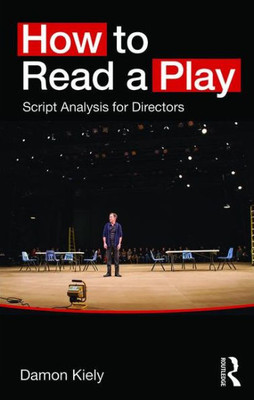

The work done on a play before the first rehearsal, the first group reading or even the before the cast have met, can be crucial to the success of a production. Directors and dramaturgs must know how to analyze, understand and interpret a play or performance text if they hope to bring it to life on the stage. This book provides a broad range of tools and methods that can be used when reading a text, including: Lessons from the past. What can we learn from Aristotle, Stanislavsky, Meyerhold, Vakhtangov, Brecht and Harold Clurman? This section establishes the models and methods that underpin much of a director's work today. A survey of current practices in Western theatre. A combination of research, interviews and observation of practical work addresses the main stages in understanding a play, such as getting to know characters, sharing ideas, mapping the action and grappling with language. A workbook, setting out twenty one ways of breaking down a play, from the general to the particular. Contributions, reflections and interjections from a host of successful directors make this the ideal starting point for anyone who wants to direct a play, or even devise one of their own. This wide range of different approaches, options and techniques allows each reader to create their own brand of play analysis.
- | Author: Damon Kiely
- | Publisher: Routledge
- | Publication Date: Mar 24, 2016
- | Number of Pages: 216 pages
- | Language: English
- | Binding: Paperback/Drama
- | ISBN-10: 0415748232
- | ISBN-13: 9780415748230
- Author:
- Damon Kiely
- Publisher:
- Routledge
- Publication Date:
- Mar 24, 2016
- Number of pages:
- 216 pages
- Language:
- English
- Binding:
- Paperback/Drama
- ISBN-10:
- 0415748232
- ISBN-13:
- 9780415748230





